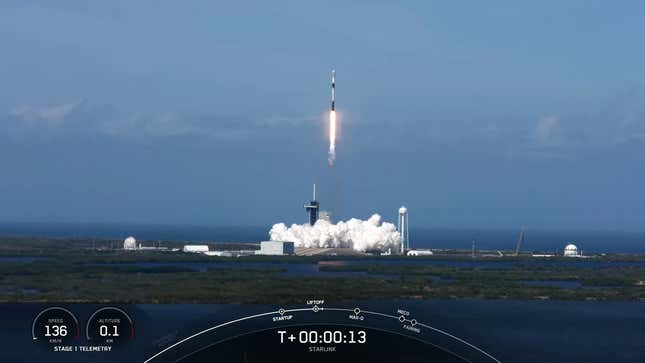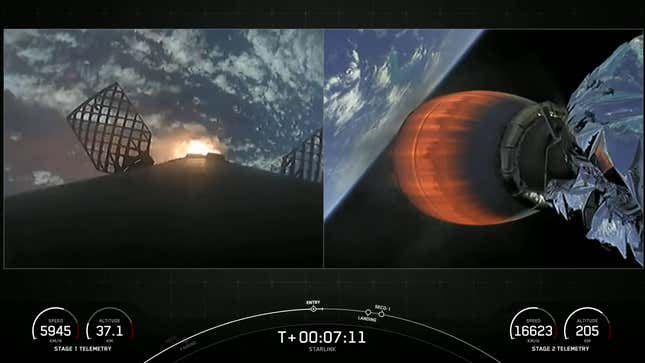
When you think about space, your mind probably conjures images of zero gravity zen — quiet, serenity, a seemingly impossible stillness. Storms, those wrathful furors of wind and rain, probably don’t appear in your mind’s eye. But while you may only be able to feel the rain on your skin down here on Earth, the upper atmosphere isn’t free from its own damaging winds — winds that just cost Starlink almost an entire payload of satellites.
Last Thursday, SpaceX launched a Falcon 9 rocket fully loaded with Starlink satellites — 49 of them in total, all headed for a permanent location low in Earth’s orbit. Trouble came just a day later, when a geomagnetic storm interfered with the orbit of 40 of those satellites. Each of those 40 has now already burned up in the atmosphere, or is in the process of doing so.

SpaceX claims the storm’s heat increased the density of the upper atmosphere, creating too much drag for the Starlink satellites to endure. While that sounds counterintuitive to a site full of car enthusiasts, who know that cooler intake air leads to higher oxygen density, the science is backed up by the National Oceanic and Atmospheric Administration’s Space Weather Prediction Center. I hope that office is rife with plays on the word “meteorologist” on a daily basis.
Starlink has launched thousands of satellites, with plans to launch thousands more, so a loss of just 40 isn’t likely to meaningfully affect the larger operation. Still, the cost of a Falcon 9 launch must be difficult for the company to just write off after 80% of the rocket’s payload is destroyed. Elon Musk has claimed a cost of $62 million per launch in the past — while that number is almost definitely lower now, it’s not exactly pocket change.